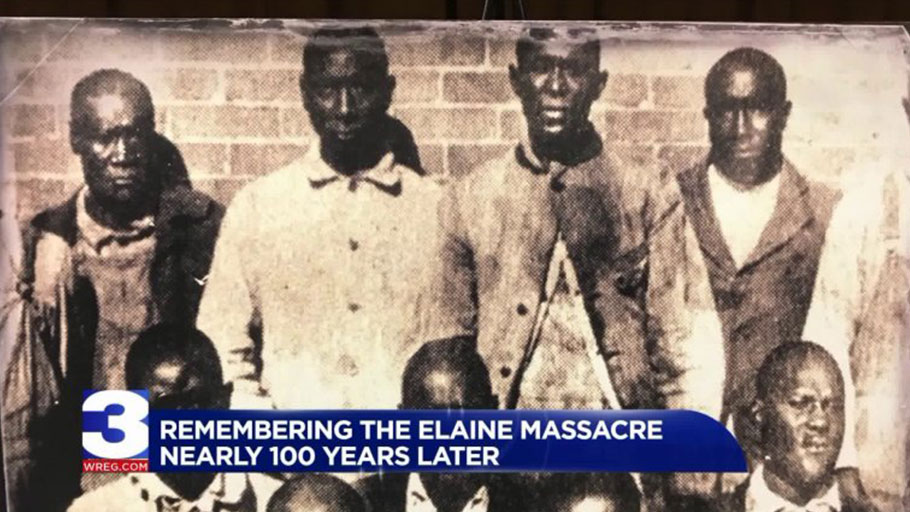ELAINE, Ark. — It is considered one of the darkest days in American history — the Elaine, Arkansas Massacre of 1919.
More than 200 African-Americans — men, women and some children — were killed by armed whites in the small Arkansas Delta town about an hour and half southwest of Memphis. It’s called one of the most bloody and horrific massacres in American history.
Five white people were killed in the massacre. However, no white people were ever charged for the killings.
Friday, hundreds of people gathered for what’s called the Elaine Truth Telling Commission hearing, an examination of the tragic events. Through letters and notes handed down from generations, residents of Elaine reflected on the massacre of 1919.
It all started when black sharecroppers sought to unionize.
“Black farmers here figured out they could get equal prices by shipping their cotton to Boston, thereby circumventing the Helena companies that were paying unfair prices,” said Rev. Mary Olson of the Elaine Legacy Center.
While meeting on the night of Sept. 30, 1919, a large group of armed whites gathered to put down a rumored black insurrection.
It turned into a bloodbath.
“People just trying to do what they needed to do to be prosperous and have their families and live their lives,” said state Sen. Joyce Elliott. “And with this abrupt interruption in their efforts to try and live like anybody else, we had this horrific massacre.”
Members of the Elaine Truth Telling Commission came to this small Arkansas Delta town to hear from ancestors of those impacted by the massacre.
The commission also heard from citizens who say reparations should be made to the families of those killed in the massacre, and farm land they say was stolen should be returned.
But there’s concern, as the centennial of the massacre approaches, that race relations in America are far from what they should be.
“Charlottesville in 2017 is the white supremacy we’re talking about in 2019, and was the white supremacy that was Elaine in 1919,” said Wendell Griffen, chairman of the commission.















